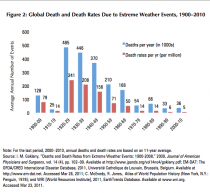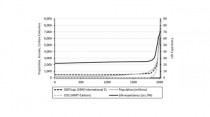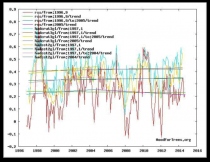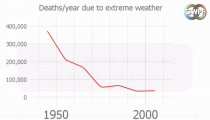Appollo Astronaut rushed off stage at UN Climate Summit to make way for Kerry Photo Op
Joe Bastardi
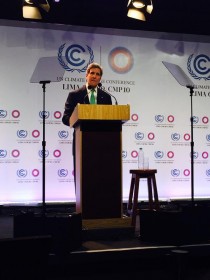
Despite being given a slot of 30 minutes for their talk, they were told they had to “wrap up” after 18 minutes into their presentation to make room for Secretary Kerry who is attending the UN talks to promote a new UN climate treaty. Kerry said in October that ”If [skeptics are] wrong: catastrophe...Life as you know it on Earth ends.” Kerry has also declared that climate change “may be, in fact, the most serious challenge we face on the planet.”
I would have be more confident in the good senators never let a good crisis go to waste idea if he got something beyond a D in Rocks for Jocks
Its ironic isn’t it. Guys like Walt Cunningham were heroes to little guys like me but when I was a kid, so was a president that was a senator from Massachusetts. There were 4 things I loved as a kid ( outside of family).. weather, politics ( when growing up, would watch the Sunday talk shows, and wanted to be president) History and Space. As such. Mercury, Gemini, Apollo were all big deals to me. The astronauts were heroes, along with a certain senator from Massachusetts that became president when I was just 5. Nasa represented man reaching beyond his grasp. Like him or not, John Kennedy not only challenging his countrymen, but letting the world know who the torch was passed too, is something that even today is something sorely missed by people like me
Think about what Kennedy and NASA meant. When the Russians launched the space race, NO way was the US going to let a system that destroyed the hopes of the individual out perform the nation that had a constitution that stressed the opposite. People thought it was a waste of time and money. But the light of possibility to a free and competitive people meant more than just who got to the moon fastest.
So, here we have one of the heroes from my day, getting cut short in his anti AGW presentation, by a former senator from Massachusetts. The guy getting cut short is still a hero to me. For all of his now listed imperfections, the light of possibility that the former senator, turned president, in1960 represented, is still heroic to me. Men are not Gods, and fall fall short of it. But there is something to striving for something higher even with the demons all of us have that we must confront.
But in 2014 look who gets pushed off stage because of who is coming on. And over what??? Global warming????
Perhaps the problem is that we have people today who cant measure up to the idea of possibilities that we embraced in 1960, so instead need to find something that can make them look heroic, but have no chance to actually be resolved.
The moon is there and we got there. Its always risky to actually commit to a tangible goal, as opposed to one that no one can truly define, and never gets you to confront the true problem, the desire to measure up to things in a way where you actually see where you stand.
The Cunninghams, the Kennedy’s etc of that generation did shoot for things where success and failure could be measured, and we were better off for it
--------
A Commentary by John Stossel
People argue about whether the “consensus” of scientists is that we face disaster because of global warming. Instead of debating whether man’s greenhouse gasses will raise temperatures, we should argue about how we gauge disasters.
If you take most environmentalists and climate scientists at their word, the Earth heated up about 1.4 degrees Fahrenheit over the past century, not much more than it heated up the century before that. Warming may increase, but no one can be certain of that.
Let’s agree for the sake of argument that this recent warming was partly caused by humanity. Let’s also agree that there are some negative effects, including more frequent coastal flooding or longer droughts.
If we agree that those are costs, shouldn’t we also look at the benefits? Much of modern civilization owes its existence to our use of the fossil fuels that produce the greenhouse gasses.
I don’t see that civilization as misfortune. I wish climate alarmists would weigh its accomplishments against the relatively small downsides of climate change. One of industry’s biggest accomplishments is creating a world where far fewer of us are likely to die because of weather.
Alex Epstein’s book ”The Moral Case for Fossil Fuels” documents the rapidly shrinking number of human beings killed by storms, floods and other climate events thanks largely to ever-growing industry, fueled mainly by oil, natural gas and coal.
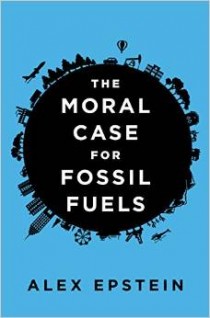
On my show this week, he argues that if we compare conditions a century ago to conditions last year, we shouldn’t obsess about how much carbon dioxide is in the air—or whether earth is warming—we should look at how much safer life became. Icecap Note: See this report by Indur Goklany.
See how it increased life expectancy:
In 2013, “Climate-related deaths were at a record low—in supposedly the worst climate in history—under 30,000,” says Epstein. In 1931, bad weather killed 3 million people.
You can argue that we get some things wrong as a civilization, but thanks to our use of fossil fuels, we get something very right.
Epstein points out that humanity owes its current ability to survive harsh winters, arid deserts and other naturally dangerous environments to the same fuels that activists now condemn: “We have the luxury of being able to absorb a certain amount of climate-related damage so we can live in all of these cool places.”
His argument is unusual because environmentalists spread the idea that, without human interference, the planet is perfect.
But by what standard?
“If you went to someone 300 years ago and asked them, do you have a perfect climate?” they would think you were crazy, says Epstein. “They were terrified of climate, because climate doesn’t give you the resources that you need. It doesn’t give you water when you need it. It doesn’t give you the temperature when you need it.”
It was once common to say that humans change their environment. That shouldn’t offend people today, says Epstein. We should be thrilled that humans “create technology to master climate… That’s why so few people today die from climate.”
Epstein correctly says that instead of talking about “climate change”—of which there will always be some, with or without human influence—we should focus on “climate catastrophe,” weather that actually kills people. Those catastrophes, measured in lost lives, are getting rarer.
Most of the changes humans make to our environment are desirable changes that help us live longer and more comfortably. “The dogma that man is ruining the planet rather than improving it is a religion, a source of prestige and a career for too many people.”
If we regard nature as pristine and think it must never be altered, we will have big problems. We will die young and lead miserable, difficult lives.
I think of industry as something that is mostly very good for us, with a few minor side effects that aren’t. Fossil fuels are a little like antibiotics, says Epstein. It’s good to draw attention to minor side effects, but it would be crazy to abandon all treatment because of them.
Fossil fuels are no catastrophe. They contribute to health and a better life.
John Stossel is host of “Stossel” on Fox News and author of “No They Can’t! Why Government Fails, but Individuals Succeed.” For other Creators Syndicate writers and cartoonists, visit www.creators.com.
By Joseph D’Aleo
Despite the administration and mainstream media’s continued emphasis on so called ‘global warming’ to support their ideological agendas, there are many scientists around the world who strive to educate the populace through editorials, interviews and debates on the real climate change story. One such person, Dr. Gordon Fulks, worked with me and other scientists on amicus briefs to the DC Circuit and Supreme Court on the failed science of the UN and EPA.
In debates, he has had to fight the arguments that the science is settled with 97% in agreement and the 18 year pause does not exist with this year being the warmest year on record. These claims are fabricated.
The 97% claim of support among scientists is complete fraud. The Petition Project, which collected the signatures of 31,000 American scientists, 9,000 of us with PhDs, demonstrated that the claims of overwhelming support are completely bogus. Support among scientists who earn their living from climate hysteria is probably that high but not among those with similar training who do not.
A study of the professional members of the American Meteorological Society (Stenhouse, et al., BAMS 2013) showed support at about 50%, depending on the question asked. A recent study by Legates et al showed support for the most extreme positions that CO2 is causing everything and we are headed for catastrophe is less than 1%.
Temperatures have flat-lined in all the satellite and ground based data sets for an average of 18 years.
Using the actual data that goes into the forecast models used for the 7 day forecasts you see on TV and the internet, we find the global anomaly was a mere +0.07C in November and for the year to date a measly +0.11C, far short of the +0.68C warmest ever anomaly that NOAA claimed last month. One modeler told me “It was obvious to me since about April that NOAA had decided that 2014 was going to be the hottest year ever. The White House needed this for their political objectives.” It appears Gruber’s ideas have legs.
Gordon published an editorial last week and gave me permission to repost it.
Politics and alarmism have no place in climate science
By Dr.Gordon J. Fulks
When Professor Chris Folland of the British Hadley Centre for Climate Prediction and Research said: “The data doesn’t matter. We’re not basing our recommendations on the data. We’re basing them on the climate models,” he was being exceedingly honest about the way alarmists view science.
Because of the subsequent uproar, he is now willing to admit some role for robust scientific data. But he still seems unable to clearly separate storytelling and computer simulations from real science. He should know that if it is not anchored in logic and evidence, it is not science. Non-scientists may find this difficult to understand, because they have been fed a steady diet of climate alarmism from the media. Tall tales, anchored in “consensus” (politics) and “belief” (religion), are not science.
Appropriate scientific education is also lacking among prominent alarmists such as Dr. Rajendra Pachauri, chairman of the UN’s Intergovernmental Panel on Climate Change, and Dr. Ralph Cicerone, president of the National Academy of Sciences. Railroad and electrical engineers should be able to understand this topic, but these two certainly do not.
Past presidents of the NAS who were genuine scientists, such as Dr. Philip Handler, had a better understanding: “Scientists best serve public policy by living within the ethics of science, not those of politics. If the scientific community will not unfrock the charlatans, the public will not discern the difference - science and the nation will suffer.”
What about Folland? It turns out that he has only a bachelor’s degree in physics, hardly enough education to be a real professor. Yet he has won many awards for adhering to the paradigm. Could he be correct that climate simulations actually work? A report by alarmists in the Proceedings of the NAS (Santer 2012) contained the striking admission that their models are high by a factor of two in predicting the global temperature trend. Of course, that admission was buried where no one saw it. Another critique by climatologist Dr. John Christy showed that the models are wrong by a factor of 3.5 in the tropical mid-troposphere where there is supposed to be a “hotspot” caused by carbon dioxide warming. Robust satellite and radiosonde data show no hotspot.
What about the “unusual warming recently” claimed by President Barack Obama’s National Climate Assessment 2014? The only thing unusual has been the lack of global warming for more than 15 years. The Arctic did warm more than any other region after 1975, the tropics only slightly and the Antarctic not at all. But the Arctic also warmed significantly after 1900, to a peak around 1940 that was warmer than today. Surprise! Our climate is cyclical over decades! That’s an ocean effect, not a CO2 effect.
With climate models that do not work, with a missing hotspot, and no net global warming in a long while, the government’s scientific case for alarm strikes out. The San Francisco Examiner had it right in 1888: “There is no joy in Mudville, mighty Casey has struck out.”
Gordon J. Fulks, Ph.D, holds a doctorate in physics from the University of Chicago, Laboratory for Astrophysics and Space Research.
Finally, in response to a recent HLN letter championing the UN and saying their work by 2000 scientists says my presented facts must be wrong, I post a link to this story by TV Meteorologist and college professor Art Horn. Art has appeared with me on Hudson Cable TV hour long climate discussions. http://icecap.us/index.php/go/political-climate/ipcc_5th_assessment_is_very_confident_that_theyre_not_sure/.
And in this post, http://wattsupwiththat.com/2014/04/26/two-scathing-reviews-by-scholars-working-with-the-ipcc-show-why-the-organization-is-hopelessly-corrupted-by-politics/, read how two well known IPCC lead authors quit the IPCC during the attempts to prepare the latest Summary for Policymakers because they felt the science was being seriously corrupted by politics. They are just the latest in the growing list of IPCC scientists who quit because they did not want their name associated with the UN reports.
A better alternative to the IPCC report for policy decisions is the NIPCC Climate Change Reconsidered report that has reviewed thousands of peer reviewed papers and comes to a non alrming conclusion.
New paper faults World Health Organisation’s wilful exaggerationA new briefing paper from the Global Warming Policy Foundation examines the World Health Organisation’s recent report on climate change and finds that its estimates of future mortality from global warming are grossly exaggerated.
The WHO report predicted that climate change would bring about 250,000 extra deaths annually between 2030 and 2050, but relied upon absurd assumptions to reach this conclusion. For example, the report assumes that the people affected by climate change will forgo commonsense steps to protect themselves, including several that are already in the works in some developing countries.
WHO-deaths-exagerate
Briefing paper author Dr Indur Goklany said:
“The idea that people would not, for example, react to higher sea levels by building higher sea defences or even moving away from the coast is preposterous, so for the WHO to suggest such a high death toll from climate change completely misleads the public.”
And as Dr Goklany goes on to explain, the WHO’s results use climate model results that apparently overstate the warming trend three-fold compared to observations despite using 27% less greenhouse gas forcing. The WHO also assumes that higher carbon dioxide levels will have no beneficial effects on crop yields, despite scientific studies having confirmed that this is precisely what will happen in a wide range of crop species.
“Because of its willful exaggerations,” says Goklany, “the WHO study risks scaring people into taking ill-considered costly actions to limit greenhouse gases rather than focusing on higher priority global health issues such as hunger, malaria and diarrhea diseases, which can be addressed at a fraction of the cost’.
Full report (PDF)
Dr Indur Goklany is an independent scholar and author. He was a member of the U.S. delegation that established the IPCC and helped develop its First Assessment Report. He subsequently served as an IPCC reviewer.
GWPF TV



